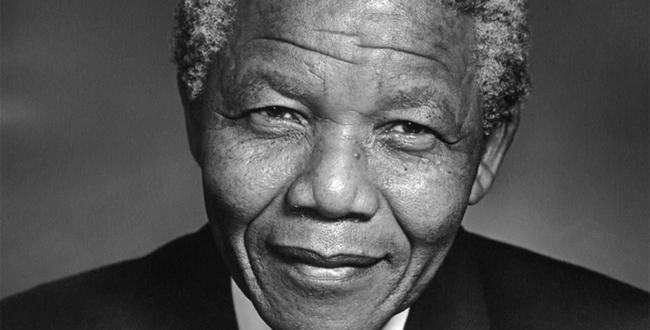
Tribute to Nelson Mandela by The Most Rev’d Dr. The Hon. John Holder, CBE, LLD Bishop of Barbados, Archbishop of the West Indies
There are some points in human history when the world comes face to face with the greatest of human possibilities. It pauses and it discovers that in spite of all the atrocities of history, in spite of the negatives in human relationships, there is still in each of us a potential for good that can be released, developed and put to work to make the world a better place.
Two of the most significant on these moments are connected to Nelson Mandela. Who can forget Feb. 11, 1990 when the whole world paused to watch him walk to freedom after 27 years in prison? We all dreamt then of a world in which his country was free of the blight of Apartheid and all South Africans could be free and have access to the resources of their country.
We held high the possibility that the world motivated by his release could go into high gear to eradicate the traces of prejudice, racism and bigotry that cripple human development.
The human possibilities that he came to embody were strengthened when he refused to preach hatred and generate bitterness against those who had snatched away so much of his life.
His rise to be president of his country after its first democratic election bestowed upon him a universal iconic status that cemented all the possibilities of humanity that he came to embody. We realized that things that were once thought to be impossible can happen.
When the world was drawn into the second significant moment, his death, we paused once more to reflect on the human possibilities that are associated with his life. The moment was naturally greeted with a touch of sadness, but the sadness sent us to reflect on his life that embodied the greatest of human possibilities in a manner that few lives have.
We reflect and we discover that it is possible not to allow experiences hatred and anger and prejudice of the worse type to imprison us in a world of revenge and destruction. There are other possibilities.
There is the possibility of guiding both the perpetrators and the victims to a new and fresh path of freedom. This was surely Mr. Mandela’s call. It was his greatest gift to his country and to the world.
He also led us to see that there is a possibility that those whose conscience had grown numb to the violence they inflicted upon their fellow human beings could be sensitized and be awaken from their slumber.
His determination to steer his country along a path free of any call for revenge helped the awakening process. He realized the walk to freedom was still a long arduous struggle for justice for all, and there was no quick fix. Possibilities were not reduced to easy readymade solutions to his countries complex problems.
We reflect on his life touched by the sadness of his death and we see other human possibilities. We see that it is possible not to compromise on justice no matter how much pressure is brought to bear upon us to do the very opposite.
The 27 years spent in prison could have been a ready excuse to compromise on his demands for justice for all South Africans. But he did not follow this easier path. He maintained his call for justice.
We see as well reflected in his life the possibility of being ever conscious of one’s moral responsibility. As a leader of his people, even from behind prison bars, his was a moral duty to ensure that the struggle for freedom and justice did not die. He lived up to this responsibility and displayed to the world yet another important positive element of humanity.
But above all else, Mr. Mandela taught the world about the possibilities of hope at our darkest moments. To most persons living in the era before his release it seemed as if the Apartheid regime of South Africa would last forever. The powers of the world were slow in bring the regime to an end.
Mr. Mandela embodied the hope. The ‘Free Nelson Mandela’ movement was the constant reminder that there was a group of God’s children in his world that were being denied their basic divine right, the right of freedom.
The conscience of the world was being constantly directed to the bundle of moral contradictions that was South Africa and was urged not to slacken on effort to set free God’s children who were victims of these contradictions.
We experienced hope in a special way on that eventful morning of Feb. 11, 1990. We thank God then, and also now, for the human possibilities that that can burst into action ever so often make this world better.
We thank God for the life and work of Nelson Mandela. We are gracious for those sparks of human possibilities that he held up to the world and generated hope. Our moral responsibility is to ensure that these sparks are never extinguished.
May he rest in peace.






Amen! This is a brilliant article that addresses Mandela’s accomplishments. This is why the world is now in South Africa. Sir you have done justice to the memory of a great man. I wish others can see Mandela as you do and sing praises to him and his accomplishments – not the struggle before he went to jail. That is not part of his legacy. He never forgot but he never allowed it to block his dreams for the homeland.
Thanks again for a very powerful tribute to this wonderful man.